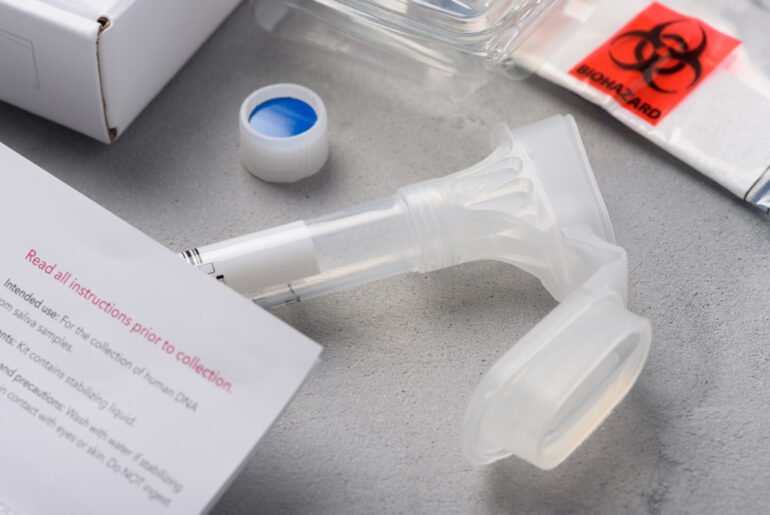As the healthcare industry continues to grow and evolve, the need for efficient and reliable medical courier services has never been greater. Medical couriers and couriers for pharma play a crucial role in ensuring that important medical specimens, documents, and supplies are transported safely and securely between healthcare facilities. In 2024, the demand for skilled medical couriers is expected to continue to rise as advancements in technology and changes in healthcare practices create new opportunities and solutions for hospitals, biotech companies, and professionals in this field.
If you are considering a career as a medical courier in the medical delivery space, this ultimate guide is here to help you navigate the steps needed to become successful in this fast-paced and rewarding profession. From understanding the essential skills and qualifications required to finding job opportunities and advancing your career, this guide will provide all the information you need to start your journey as a medical courier in 2024.
- What is the medical courier industry?
- What does a medical courier professional do?
- Which skills are useful for medical couriers?
- What are the steps to becoming a certified medical courier?
- What advantages come with being a medical courier?
- How do I start a medical courier business?
- Benefits of RouteManager
- Closing Thoughts
What is the medical courier industry?
The medical courier industry is a crucial component of the healthcare system, responsible for transporting important medical specimens, documents, medical devices, transplant organs, surgical equipment, and supplies between various healthcare facilities. Medical couriers play a vital role in ensuring that these items are delivered safely and securely to their intended destinations, whether a hospital, laboratory, clinic, or other healthcare facility.
In addition to transporting items within a single facility, medical couriers may also be responsible for delivering items between multiple facilities, such as transferring specimens from a clinic to a laboratory for testing. This requires careful handling and attention to detail to ensure that the integrity of the specimens is maintained throughout the transportation process.
What does a medical courier professional do?
A medical courier professional is responsible for the safe and timely transportation of medical specimens, documents, and supplies between healthcare facilities. This includes picking up specimens from hospitals, clinics, laboratories, or other healthcare facilities like nursing homes and delivering them to their designated destinations. Medical couriers must ensure that all items are handled with care to maintain their integrity and prevent contamination.
In addition to transporting items, medical couriers may also be responsible for maintaining accurate records of the items they are transporting, ensuring that they are delivered to the correct locations, and following all necessary protocols and regulations to ensure the safety and security of the items in their care. They may also be required to communicate with healthcare professionals to coordinate pickups and deliveries and provide updates on the status of their shipments.
Which skills are useful for medical couriers?
- Attention to detail: Medical couriers must be detail-oriented to ensure that they accurately record and track the items they are transporting. This includes making sure that specimens are properly labeled, documents are correctly filed, and supplies are delivered to the correct locations.
- Communication skills: Effective communication is essential for medical couriers to coordinate pickups and deliveries with healthcare facilities, provide updates on the status of their shipments, address any issues or concerns that may arise during transportation, and give customers peace of mind.
- Time management: Medical couriers must be able to prioritize their tasks and manage their time effectively to ensure that items are delivered promptly. This includes planning efficient routes, adhering to timely delivery schedules, and responding quickly to any changes or delays, especially if you offer rush courier services.
- Problem-solving skills: Medical couriers must think quickly and make decisions on the spot to address any unexpected challenges that may arise during transportation. This could include navigating traffic delays, dealing with inclement weather, or resolving any delivery issues.
- Physical stamina: The job of a medical courier can be physically demanding, requiring individuals to lift and move heavy items, walk long distances, and work in various weather conditions. Having physical stamina is essential to ensuring that medical couriers can safely and effectively transport items between healthcare facilities.
What are the steps to becoming a certified medical courier?
To become a certified medical courier, individuals typically need to meet certain requirements and undergo specific training. While the exact requirements may vary depending on the employer or state regulations, there are some common steps to becoming a certified medical courier:
- Education and Training: Many employers require medical couriers to have a high school diploma or equivalent. Some companies may also prefer candidates with additional education or training in healthcare, logistics, or transportation. Some employers may also provide on-the-job training to familiarize new hires with the specific protocols and procedures for transporting medical items.
- Obtain a driver’s license and clean driving record: Medical couriers are typically required to have a valid driver’s license and a clean driving record in order to operate vehicles safely and legally. Some employers may also require medical couriers to pass a background check and drug test.
- Obtain any necessary certifications: Some employers may require medical couriers to obtain specific certifications, such as HIPAA certification or hazardous materials training, in order to transport medical items safely and securely. These certifications can usually be obtained through online courses or training programs.
- Gain experience: While some employers may hire entry-level candidates, having previous experience in healthcare, transportation, or logistics can be beneficial when applying for a job as a medical courier. Consider gaining experience through internships, volunteer work, or part-time positions in related fields to enhance your resume.
- Apply for jobs: Once you have met the necessary requirements and gained any required certifications in medical logistics, start applying for medical courier positions at medical facilities, laboratories, courier companies, or other relevant organizations. Be sure to highlight your relevant skills, experience, and certifications in your resume and cover letter to stand out to potential employers.
- Maintain professionalism: As a medical courier, it is important to maintain a high level of professionalism at all times when interacting with healthcare professionals, patients, and other members of the healthcare team. This includes being punctual, following all safety protocols, and handling items with care and confidentiality.
Start Using NEMT Software!
What advantages come with being a medical courier?
Becoming a medical courier offers a range of benefits that make it an attractive career choice. One primary advantage is the ability to work independently. As a medical courier, you have the freedom to manage your own schedule and workload. This level of autonomy allows you to maintain a healthy work-life balance and take control of your career.
Another advantage is the ability to choose your clients. Medical couriers often have the opportunity to work with a variety of patient care and healthcare facilities, such as hospitals, clinics, and laboratories. This diversity in clientele allows for exposure to different environments and experiences, which can contribute to professional growth and development.
Additionally, working as a medical courier offers a diverse range of tasks. You will constantly encounter new challenges and scenarios while delivering medical supplies, samples, and medical equipment. This ever-changing nature of the job keeps it exciting and engaging, preventing routine boredom from setting in.
How do I start a medical courier business?
Starting a medical courier business can be a rewarding venture for individuals who have experience in healthcare, transportation, or logistics. Here are some steps to help you get started with your own medical courier business:
1. Research and Planning: Begin by researching the market demand for medical courier services in your area. Identify potential competitors and analyze their services, pricing, and target clientele. Develop a business plan that outlines your goals, target market, services offered, pricing strategy, and marketing plan.
2. Obtain necessary licenses and permits: Before starting your medical courier business, make sure to obtain any required licenses and permits to operate legally in your area. This may include a business license, vehicle registration, and insurance.
3. Purchase or lease vehicles: Invest in a reliable fleet of vehicles that meet the requirements for transporting medical items safely and efficiently, especially if you want to offer timely one-day delivery services or overnight STAT specimen delivery. Consider purchasing or leasing temperature-controlled vehicles that are equipped with temperature control systems for the utmost care of equipment on board, GPS tracking, and secure storage compartments to ensure the safe transport of medical supplies and samples.
4. Hire qualified staff: As your business grows, consider hiring qualified staff to assist with deliveries and logistics. Look for candidates who have experience in healthcare transportation or logistics to ensure that they are knowledgeable about handling medical items safely and securely.
5. Expand your network: Building relationships with health organizations, healthcare facilities, laboratories, and other potential clients is essential for growing your medical courier business. Attend industry events, join networking groups, and reach out to potential clients to establish partnerships and secure contracts.
6. Invest in technology: Utilize technology to streamline operations and enhance the efficiency of your medical courier business. Consider investing in specimen tracking software for route optimization like RouteManager, GPS online tracking systems for real-time vehicle monitoring, and secure communication platforms for exchanging information with clients and staff.
Benefits of RouteManager
RouteManager is a specimen tracking software that helps pharmaceutical delivery, medical delivery drivers, and medical courier businesses with last-mile logistics. Some of the key advantages of using route planning software include:
1. Advanced Route Planning: Utilizes advanced algorithms to create optimized rush delivery routes that consider traffic patterns, road conditions, and customer preferences. This ensures that drivers are taking the most efficient direct routes possible, saving time, fuel costs, and labor costs.
2. Real-Time Tracking: By providing real-time tracking of deliveries, medical courier businesses can monitor the progress of their drivers and ensure proof of secure lab sample delivery and on-time deliveries. This can help improve customer satisfaction and streamline operations.
3. Reporting & Analytics: Offers comprehensive reporting and analytics tools that allow businesses to analyze seamless specimen delivery performance, track key metrics such as safe delivery times and fuel consumption, and identify areas for improvement. This data-driven approach can help businesses make informed decisions to optimize their healthcare delivery operations.
4. Integration with Existing Systems: Easily integrate with existing systems such as GPS devices, fleet management software, and customer relationship management (CRM) systems. This seamless integration streamlines the rush specimen delivery process and ensures that all data is centralized and accessible in one place when planning routes.
Closing Thoughts
Becoming a medical courier in 2024 can be a rewarding and lucrative career path. By obtaining the necessary licenses and permits, investing in reliable vehicles, hiring qualified staff, expanding your network, and utilizing technology such as RouteManager software, you can streamline operations and enhance the efficiency of your medical courier business. Partnering with RouteManager can provide numerous benefits for your business, including advanced route planning, real-time tracking, reporting, analytics, and seamless integration with existing systems. By leveraging RouteManager’s features, you can optimize your delivery operations, improve customer satisfaction, and drive growth for your medical courier business. Ready to grow your business? Book your free demo today!




